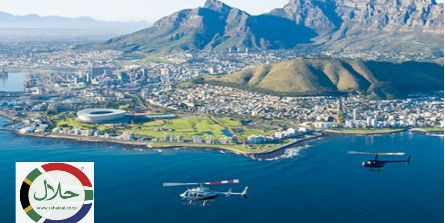With between 400 000 and 600 000 Muslim visitors arriving in South Africa annually (4-6% of total arrivals), and a resultant capital injection of between R3.75 and R4.5bn (€234m - €281m), Halal tourism is a market with huge growth potential for SA that has remained relatively untapped.
Halal tourism is one of the fastest growing sectors in global travel. According to the 2017 Global Muslim Travel Index (GMTI), the number of international Muslim travellers in 2016 was estimated to be 121 million, a figure that is expected to grow to 156 million by 2020.
Most importantly, Islamic travellers are prepared to spend money on Halal tourism, with their global expenditure sitting at $155bn (R2.1tn) in 2016. This is forecast to reach $220bn (R2.9tn) by 2020 and $300bn (R4tn) by 2026.
Professor Melville Saayman, Research Director of TREES (Tourism Research in Economic Environs Society) at North-West University, says South Africa is an ideal location for Halal tourism because the country already has an established Halal community. “1.9% of our population is Islamic. So the infrastructure is already in place. There is massive growth potential for SA with regards to Halal tourism.”

The 2017 GMTI agrees, ranking South Africa fourth on its list of the top ten non-OIC countries for Halal tourism.
Says Saayman: “The challenge is for South Africans to expand this sector to a wider variety of areas. The Western Cape and KZN are well positioned to offer these services, however, other provinces could definitely improve their ability to host Muslim travellers.”
Khalid Vawda, CEO of Islamic Travel Tours, also believes that SA has great potential as a Halal destination. “South Africa is a good halal tourism destination because our halal food regulations are stringent allowing Muslim travellers’ peace of mind.
“All our packages are Halal and all our business comes from foreign Muslim travellers. From 2016 to 2017 our booking numbers have doubled. Halal tourism is definitely a key industry for SA to tap into.”
How can South Africa tap into this potential? By increasing education and improving marketing strategies to foreign tour operators. “The education needs to focus on what goes into Halal certification, how to accommodate sensitivities and the basic etiquette required when providing a service to Muslim clients, especially that of cross-gender interaction,” says Vawda.






















